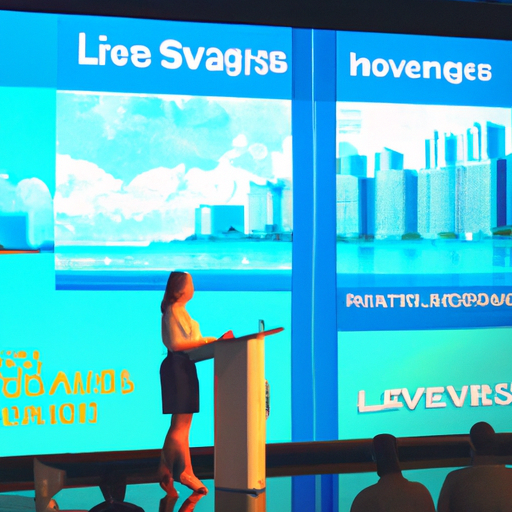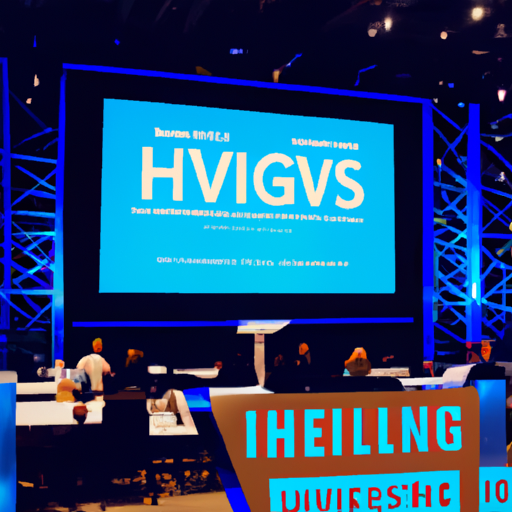
Emerging Trends in the Hospitality Industry
The hospitality industry is constantly evolving, with new trends and innovations shaping the way hotels and resorts operate. The HVS Conference is a highly anticipated event that brings together industry experts to discuss the latest developments and share insights. In this article, we will explore some key takeaways from the conference, focusing on emerging trends in the hospitality industry.
One of the major trends discussed at the conference was the rise of experiential travel. Today’s travelers are seeking more than just a comfortable place to stay; they want unique experiences that create lasting memories. Hoteliers are responding to this demand by offering immersive activities and curated experiences that go beyond traditional sightseeing. From cooking classes with local chefs to guided tours of hidden gems, hotels are finding creative ways to engage their guests and provide a truly memorable stay.
Another important trend highlighted at the conference was the growing influence of technology in the hospitality industry. With the rise of smartphones and the increasing reliance on digital platforms, hotels are leveraging technology to enhance the guest experience. Mobile check-in and keyless entry systems are becoming more common, allowing guests to bypass the front desk and go straight to their rooms. In-room amenities such as voice-activated assistants and smart TVs are also gaining popularity, providing guests with personalized and convenient services.
Sustainability was another key topic discussed at the conference. As travelers become more conscious of their environmental impact, hotels are taking steps to reduce their carbon footprint. From implementing energy-efficient practices to using eco-friendly materials, hotels are embracing sustainability as a core value. Some hotels are even going a step further by offering guests the option to offset their carbon emissions or participate in local conservation efforts. By prioritizing sustainability, hotels not only attract environmentally conscious guests but also contribute to a greener future.
The conference also shed light on the importance of wellness in the hospitality industry. Today’s travelers are increasingly focused on maintaining their physical and mental well-being, even while on vacation. Hotels are responding to this trend by offering a range of wellness amenities, such as fitness centers, spa facilities, and healthy dining options. Some hotels are even partnering with wellness experts to provide specialized programs and activities that promote relaxation and rejuvenation. By prioritizing wellness, hotels can attract health-conscious guests and differentiate themselves in a competitive market.
Lastly, the conference highlighted the growing importance of personalization in the hospitality industry. With the abundance of data available, hotels are able to tailor their services to individual guest preferences. From personalized welcome messages to customized room amenities, hotels are using data analytics to create unique and memorable experiences for their guests. By understanding their guests’ preferences and anticipating their needs, hotels can build stronger relationships and foster loyalty.
In conclusion, the HVS Conference provided valuable insights into the emerging trends in the hospitality industry. From experiential travel to technology integration, sustainability, wellness, and personalization, hotels are constantly adapting to meet the evolving needs of today’s travelers. By staying ahead of these trends, hotels can not only attract new guests but also provide exceptional experiences that keep them coming back. The future of the hospitality industry is exciting, and it will be fascinating to see how these trends continue to shape the way we travel and experience the world.
Strategies for Maximizing Revenue in the Lodging Sector

The Lodging Conference 2023, organized by HVS, brought together industry experts and professionals to discuss the latest trends and strategies for maximizing revenue in the lodging sector. The conference provided valuable insights into the challenges and opportunities facing the industry, and offered practical solutions for hoteliers to enhance their revenue streams.
One of the key takeaways from the conference was the importance of leveraging technology to drive revenue growth. With the rise of online travel agencies and the increasing use of mobile devices for booking accommodations, hotels need to embrace technology to stay competitive. This includes investing in a user-friendly website and mobile app, as well as utilizing data analytics to gain insights into customer preferences and behavior.
Another strategy discussed at the conference was the implementation of dynamic pricing. By adjusting room rates based on demand and market conditions, hotels can optimize revenue and maximize occupancy. This requires a deep understanding of market dynamics and the ability to react quickly to changes in demand. Revenue management systems can help hoteliers automate this process and ensure that pricing decisions are based on accurate data.
Personalization was also highlighted as a key strategy for revenue maximization. Today’s travelers are looking for unique and personalized experiences, and hotels can capitalize on this by tailoring their offerings to individual guests. This can include personalized welcome messages, customized amenities, and recommendations based on guest preferences. By providing a personalized experience, hotels can not only increase guest satisfaction but also drive repeat bookings and positive word-of-mouth.
The conference also emphasized the importance of effective distribution strategies. With the proliferation of online booking platforms, hotels need to carefully manage their distribution channels to avoid over-reliance on a single platform. This includes diversifying distribution channels and negotiating favorable commission rates with online travel agencies. Additionally, hotels should consider direct booking incentives to encourage guests to book directly through their website, thus reducing distribution costs.
In addition to these strategies, the conference highlighted the significance of investing in staff training and development. Well-trained and motivated staff can provide exceptional service, leading to increased guest satisfaction and loyalty. This can result in positive reviews and recommendations, ultimately driving revenue growth. Hoteliers were encouraged to invest in ongoing training programs and to empower their staff to go above and beyond to exceed guest expectations.
Lastly, the conference emphasized the importance of staying ahead of industry trends and embracing innovation. The lodging sector is constantly evolving, and hotels need to adapt to changing consumer preferences and technological advancements. This includes exploring new revenue streams, such as offering unique experiences or partnering with local businesses to provide additional services. By staying innovative and forward-thinking, hotels can differentiate themselves from the competition and attract a loyal customer base.
In conclusion, the HVS Conference provided valuable insights into strategies for maximizing revenue in the lodging sector. From leveraging technology and implementing dynamic pricing to personalizing guest experiences and diversifying distribution channels, hoteliers have a range of tools at their disposal to drive revenue growth. By investing in staff training and staying ahead of industry trends, hotels can position themselves for success in an increasingly competitive market.
Innovations in Guest Experience and Technology Integration
The HVS Conference is an annual event that brings together industry leaders and experts to discuss the latest trends and innovations in the hospitality industry. One of the key topics discussed at the conference was the importance of guest experience and how technology can be integrated to enhance it.
In today’s digital age, guests have come to expect a seamless and personalized experience when staying at a hotel. They want to be able to check-in and check-out quickly and easily, have access to high-speed internet, and be able to control the temperature and lighting in their room with just a few taps on their smartphone. Hoteliers are constantly looking for ways to meet these expectations and provide a memorable experience for their guests.
One of the innovations discussed at the conference was the use of mobile apps to streamline the check-in and check-out process. Guests can now download an app onto their smartphone, enter their information, and receive a digital key that allows them to bypass the front desk and go straight to their room. This not only saves time for the guest but also reduces the workload for hotel staff, allowing them to focus on providing a more personalized service.
Another area of innovation in guest experience is the use of artificial intelligence (AI) and machine learning. Hotels are now using AI-powered chatbots to provide instant customer service and answer common questions. These chatbots can be programmed to understand and respond to natural language, making the interaction feel more human-like. They can also learn from each interaction, improving their responses over time.
In addition to AI-powered chatbots, hotels are also using AI to personalize the guest experience. By analyzing data such as past bookings, preferences, and social media activity, hotels can tailor their offerings to each individual guest. For example, if a guest has previously booked a room with a view, the hotel can make sure to offer them a similar room on their next visit. This level of personalization not only enhances the guest experience but also increases customer loyalty.
Technology is also being used to enhance the in-room experience. Hotels are now equipping rooms with smart devices that allow guests to control various aspects of their stay. For example, guests can use voice commands to adjust the temperature, change the lighting, or request room service. These devices not only make the guest’s stay more convenient but also create a sense of luxury and sophistication.
Another area of focus at the conference was sustainability and how technology can be used to reduce the environmental impact of hotels. Hotels are now using smart energy management systems to monitor and control energy usage in real-time. This allows them to identify areas of inefficiency and make adjustments to reduce energy consumption. Some hotels are even using renewable energy sources such as solar panels to power their operations.
In conclusion, the HVS Conference provided valuable insights into the innovations in guest experience and technology integration in the hospitality industry. From mobile apps and AI-powered chatbots to smart devices and sustainability initiatives, hotels are constantly looking for ways to enhance the guest experience and stay ahead of the competition. By embracing these innovations, hotels can create a more personalized and memorable experience for their guests while also reducing their environmental impact.


